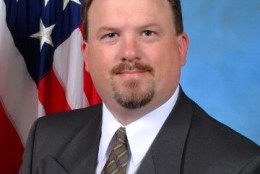Contracting
-
Mark Schwartz, the U.S. Citizenship and Immigration Services chief information officer, said he’s implementing something called impact mapping to better manage how his agency uses dev/ops to move off legacy systems.
August 19, 2016 -
The software world is being flooded with open source product. In fact, the federal government has an open-source-first policy. But maybe it's time to stop and think about sources of open source. Where does all that code originate? The software supply chain. That's something Derek Weeks, vice president and DevOps advocate at Sonatype, looks at carefully. He joins Federal Drive with Tom Temin.
August 19, 2016 -
Barry Leffew, the vice president of Adobe Public Sector, left after 10 years.
August 18, 2016 -
Vendor past performance is a big factor in awarding federal contracts. Or it should be. It's a smart practice and at the Defense Department, it's also a requirement. That's why the DoD inspector general looked at 56 Army contracts awarded by five Army contracting shops to see whether the Army was consistent in evaluating past performance. Michael Roark, DoD's assistant inspector general for contract management and payments, joins Federal Drive with Tom Temin with the results.
August 18, 2016 -
DIUX, the Defense Department innovation unit in Silicon Valley, is expanding to Austin, Texas and other places. Does that mean Secretary Ash Carter is dissing the companies right here in the D.C. region? Venture capitalist Jonathan Aberman, chairman of Amplifier Ventures, gives his take on Federal Drive with Tom Temin.
August 16, 2016 -
Even after transitioning four systems to shared services, the Department of Housing and Urban Development still doesn't have what it needs. All this is documented in the latest study from the Government Accountability Office. Valerie Melvin, director of Information Management and Technology Resources issues at GAO, shares more on Federal Drive with Tom Temin.
August 16, 2016 -
OASIS Program Manager Todd Richards and PotomacWave CEO Emma Sopko join host Mark Amtower to talk about the full scope of the OASIS contract, and why GWACs, MACs, and IDIQs are becoming more popular. August 22, 2016
August 15, 2016 -
Enterprise Information Services submitted a complaint to the Government Accountability Office on Aug. 10 on the unrestricted version of Alliant 2.
August 15, 2016 -
Jonathan Aronie, partner at Sheppard Mullin, joins host Roger Waldron to discuss GSA's Transactional Data Reporting rule, and what it means for contractors and the government. August 16, 2016
August 15, 2016 -
Six federal contractors trade associations have signed a letter asking that a rule on organizational conflict of interest be delayed a little longer. The Federal Acquisition Regulatory Council had planned on making it final right now. Trey Hodgkins, senior vice president at the Information Technology Alliance for the Public Sector, joins Federal Drive with Tom Temin with the latest developments.
August 15, 2016 -
The Veterans Affairs Department issued a new policy and decision support tree for contracting officers to ensure they are meeting the “rule of two” as mandated by the U.S. Supreme Court in the Kingdomware case.
August 15, 2016 -
Dave Nelson is leaving the Centers for Medicare and Medicaid Services to be the Nuclear Regulatory Commission’s CIO while Karen DeSalvo left her role as coordinator for health IT to focus full time on being acting assistant secretary for health.
August 15, 2016 -
Professional services contracts are going to be dominating the field in 2017. That’s the biggest takeaway from Bloomberg Government’s Top 20 Opportunities in Federal Contracting.
August 12, 2016 -
The Coalition for Government Procurement wrote a letter to GSA senior procurement executive Jeff Koses asking for a delay in the Transactional Data Reporting pilot.
August 12, 2016 -
The Defense Information Systems Agency is dramatically expanding the time and budget for the second iteration of government-operated MilCloud service.
August 11, 2016














